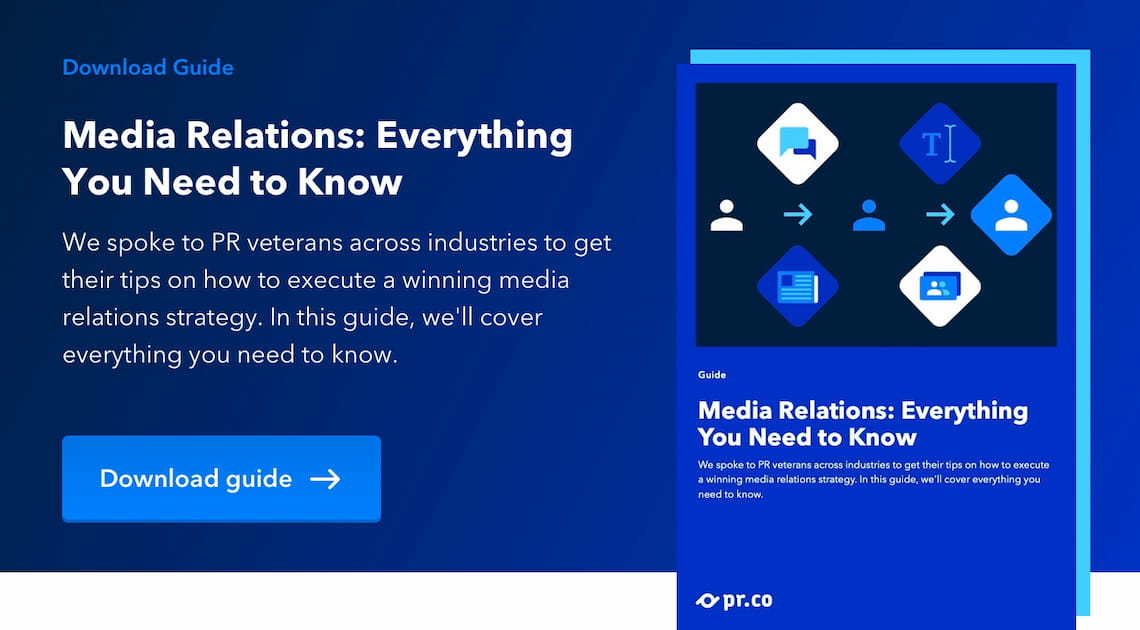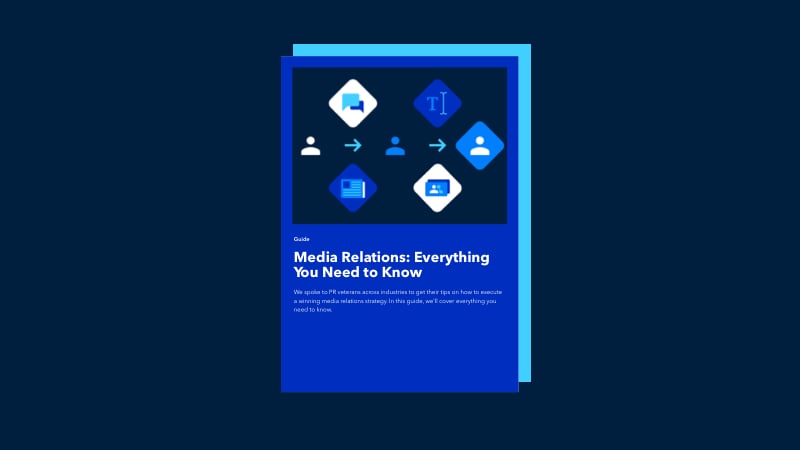The Australian bushfires raged for more than 3 months in early 2020, covering an area larger than the Netherlands and Belgium combined. A Melbourne-based publisher explains why effective communication is more crucial now than ever.
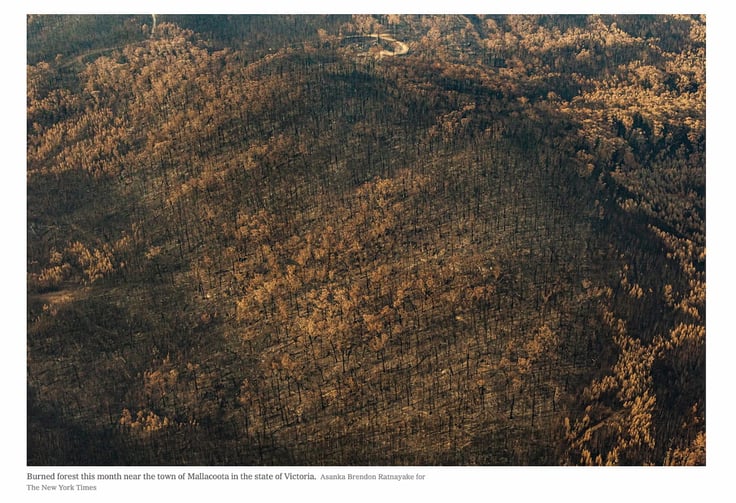
When the headlines began to hit about the sheer scale of the fires in Australia, it was hard for people overseas to comprehend. Now, as other global news erases this story from the front page, the fires still continue to burn. An Australian publisher, who wishes not to be named, talks about one of the biggest climate catastrophes to date.
With an event as destructive as the Australian bushfires, people feel utterly overwhelmed. What role does empathy play in how we process and manage events like this?
Yes, to be honest, everyone over here is utterly shocked and overwhelmed. One empathetic reaction is that people are giving very generously and that’s a great thing. It's hard to find anyone who isn't empathetic to the people, and the flora and fauna affected by this catastrophe.
While showing empathy is important, I think we need to spend at least the same amount of time urging the people in power to move beyond showing empathy and introduce drastic changes in regards to our climate and environmental policies.
I read an article recently that explained that trust is much more important – and harder to get than empathy. Without the appropriate action, empathy rings hollow. Our political leaders are showing empathy in front of the cameras, but still, support opening new coal mines and log our forests for profit.
Once the initial shock is over, I wish we would talk more about trust, especially when it comes to our politicians. They can show and communicate empathy as much as they like, but when their actions don't match their words – which is usually the case – can we still trust them? I don't think we can.

I understand empathy from the standpoint of a professional communicator, as a skill we need to develop because, without it, we can’t communicate our ideas effectively.
I’ve been thinking about how to communicate with people who don't believe that these fires were made worse by climate change. How do we convince them of facts? You need to find common ground. But that’s tricky at such a large scale, solving this will take creativity. Especially if you can't agree on certain common truths. Communicating well in this climate is one of the biggest challenges of our time.
To say the world has changed during 2020 is an understatement. Here are the skills you should harness for the future of PR.
People don't respond to facts but they do respond to stories. In communication strategy, for example, it’s widely understood that if you can discern who someone is and what motivates them- and then give them a story that corresponds with their values as an individual- they'll listen to you.
Yes. A lot of us in creative industries (including myself) don't really see that point in writing to MPs or showing up to protests or incorporating these values into our work. But these are the tools that we have the privilege to be able to use. We shouldn't feel too privileged to actually do the legwork. It feels very hippie and very weird in a way but we've got to unlearn that and become active again- this is what democracy is.
Are you currently building your communications strategy? We can help you get started. Download our canvas, for free, here.
The situation in Australia is so apocalyptic, that I would imagine that someone who was previously apathetic would push for environmental action in the workplace. Having your house burn down is pretty life-altering.
I wish I could say this is the tipping point for a lot of people. I think most Australians want climate action but just hasn't translated into votes. And I think that in part is because the media is controlled by people who pretend that Australians in country towns have to decide between a job and a future. As long as we present this false dichotomy, things won't change fast enough.
Bearing in mind that most of the fires effect the people that are the South East where people are not as conservative as the North. That's where minds need to be changed. Mining is the biggest employer in that region. People have immediate needs for them and their families, and that will always override what they want to see in the world in 20 or 40 years.
Understandably, people in that context make decisions that are focused around themselves. But people with jobs like ours can make more privileged decisions.
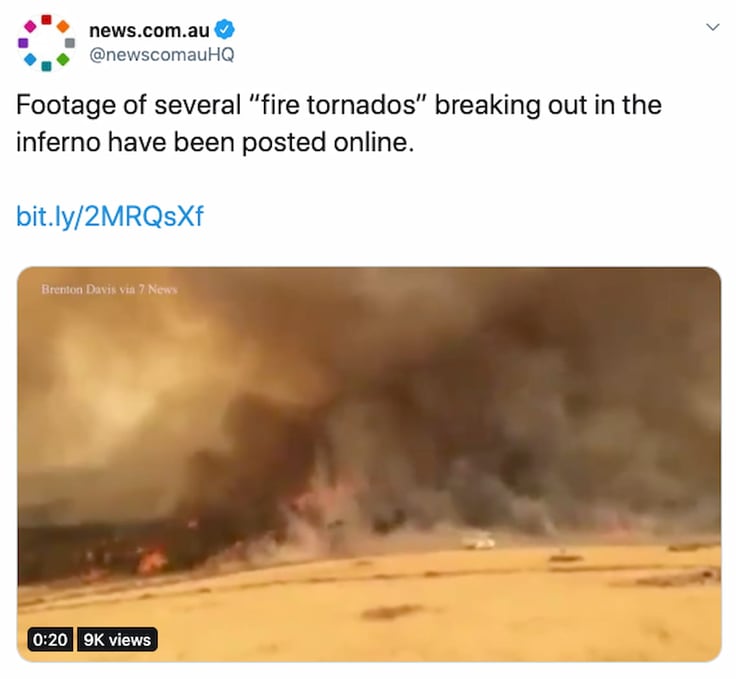
What actions could someone who works in PR or comms take that would actually have some impact?
As an employee, that's much harder to do, especially in big corporations. Though, protests at Google, Amazon, etc have shown that, even without the existence of unions, organizing yourself in larger groups can make a difference. So if you feel strongly about morally questionable stuff happening at your workplace, find other people that feel the same way and as a group takes your demands one level up.
I also think it’s about having a set of principles personally and for where you work. If your principles clash completely with the company that you work at, then you might want to consider changing your workplace.
This whole idea of purpose-driven businesses is being used for commercial benefits so I'm sort of skeptical of business as the main driver for innovation. I still think the government plays a very, very important role in change.
We also need to accept that we're not all perfect; we're all hypocrites in a way. You still live in the system but you can't live in a shed in the woods just because you don't like the way capitalism works. But you can be part of the people that criticize it and try to change it from from the inside.
Are there reasons to be optimistic?
Well, if the news and people on my Twitter feed are anything to go by, I think there's is a small glimmer of hope in the fact that we're slowly realizing that the tech that we're building has consequences that we didn't expect. Mainstream media like the New York Times and Washington Post and Atlantic, are picking up on the self-destructive path that much of the media and tech world is on.
Technology is often presented as the knight in shining armor. If you speak to some, especially in Silicon Valley, you realize that a lot of our hope is based on finding a last-minute tech solution to save the planet. But a lot of urgently needed political action is currently not being taken, because social media helped elect leaders that don't even believe climate change exists. Misinformation campaigns continue to stall much-needed progress.
Technology is great at hiding complexity. In many ways that's a good thing, it makes things easier to use, it makes us more productive, but it also robs people of agency. For example, if you don't know where information is coming from, what is truth, and what is a conspiracy theory, you can no longer make informed decisions. Democracy can't function like that.
As such, I think technology is part of the solution and part of the problem. And that realization is where I find hope. As an industry and as a society, we're slowly realizing that these new tools are not always helping us. It makes some of us think more about the value of local communities, speaking to real people, etc. It makes us reevaluate the whole concept of trust in the digital age.
Hopefully, with the idea that enlightenment is a process of figuring out, tech and media will develop more of a backbone. The time of ethics-free business is coming to an end. People are questioning the merit of striving for maximum profit and in a world where there are limits to what we can do with the resources that we have.
If we're building for the future, we better make sure that it's a future that is actually solving inequalities. I think the idea of systems change in America hasn't really arrived yet. Many European countries are already starting to make moves.
If you feel like you're setting the direction for not only your company but for the industry at large, then you should take that responsibility quite seriously. It’s a good basis for an argument to be principled in the way you approach things at work.
Before we started chatting, you said you had a bad experience with PR people in the past. Why was that and what can PR people learn from this?
With PR you have clear commercial interests and you want a story to fit around that interest. So you're trying to pick that narrative where there's no room for critical assessment, as everything needs to seem peachy. As a publisher, you get bombarded with emails with really boring, long, pointless PR. Articles that no one reads. I always just put them in my spam folder.
The worst offenders are large businesses, in my view. I guess it comes with scale, right? Once you are a giant corporation and you send out a press release to 200,000 people there's no room for a more personal or approach. So you end up with these ‘to whomever it may concern’ emails. And then you have this giant block of text and a few links. But what are they trying to achieve? 90% of the people who receive this are not going to read it unless they are paid exclusively to read press releases.
So the only way you can actually get my attention, as an individual who reads little email, is to approach me with my name and tell me how you found me. And then tell me what your proposal is and do that in a very short and very succinct way. Any other approach about anything generic, I'm just gonna completely disregard it. I know that in large companies that's how it was done for decades and that's how they still do it. But there's no way I can be convinced that this generic marketing message is worth my attention.
A lot of creatives who work in PR, advertising, etc. went into their line of work with the mind to use their skills in a positive way in the future. Given that bushfires like the ones in Australia are becoming commonplace, do you think now is the time?
Absolutely. A lot of people are a small cog in a massive machine and don't necessarily get a huge amount of joy out of it, but they need to do it because they need to pay the bills. But this is where you could find joy, by being active.
One of the most helpful things we can all do is to assess our level of privilege. If you're in a well-paid, secure position and perhaps could easily find another job, you can push much harder for changes within your organization and as a private person than someone with lesser privilege who might face real hardship as a result of speaking up. The more privilege you have, the more it is your responsibility to use it for good – to speak up and do the right thing.
There are always people who push for more progressive ideas and the general population catches up with them in time. It's just a matter of how quickly our industries can face challenges like climate change and wildfires. There's no question that the majority will decide this an emergency eventually. And these disasters will hit Europe too eventually.
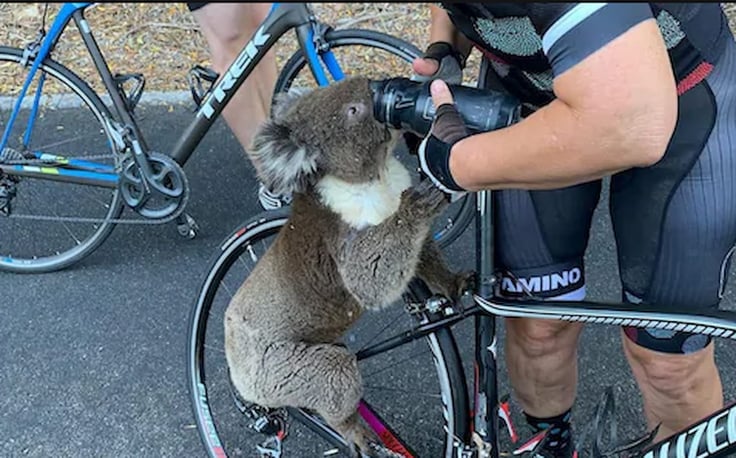
Pinker says the world's getting better. All the statistics show that there are fewer conflicts, fewer people dying of starvation, more education. I agree with that, but I think one element that is not taken into consideration is the environment. We can’t keep thriving until we realize that we are part of a very complex, interdependent system.
Currently, all the progress that we're making as a species comes at a cost of other species. We don’t exist in isolation, and we can't survive in isolation. We need to help communicate that, it’s our job.
Carmen Guillen is Content Team Lead at OLIVER Agency. With over 7 years of experience as a copywriter and editor, Carmen has written for high-profile blogs and newspapers, and directed the content teams for fast-growing startups and NGOs, including PR.co’s blog and Unfold Magazine. Carmen is passionate about ethical business and artful storytelling.. Connect on LinkedIn or send an email





